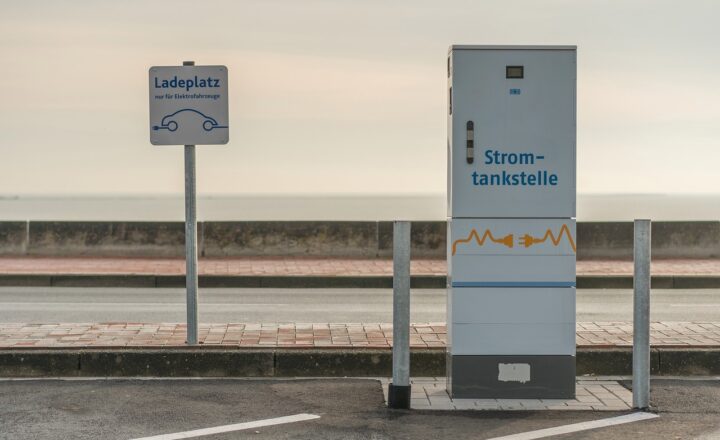Why Personal Electric Cars Are Transforming City Transportation
November 15, 2024

The landscape of urban transportation is evolving at an unprecedented pace, largely driven by the advent and acceptance of personal electric cars (EVs). As cities worldwide grapple with issues such as congestion, air pollution, and the quest for sustainable solutions, personal electric cars are emerging as a feasible answer to these challenges.
In this article, we will explore how personal electric cars are not only transforming city transportation but also enhancing the quality of urban living.
1. The Rise of Electric Vehicles
The transition from traditional gas-powered vehicles to electric ones is gaining momentum for several reasons:
- Environmental Awareness: As climate change concerns grow, more consumers are investing in electric vehicles to reduce their carbon footprint. EVs produce significantly lower greenhouse gas emissions compared to conventional vehicles, especially when charged from renewable energy sources.
- Technological Advancements: The automotive industry is witnessing rapid advancements in battery technology, charging infrastructure, and vehicle performance. Modern EVs offer longer ranges, faster charging times, and advanced features that enhance the driving experience.
- Government Incentives: Many governments are implementing incentives such as tax breaks, rebates, and grants to encourage consumers to switch to electric vehicles. These initiatives significantly lower the financial barriers to ownership, making EVs more accessible to the average citizen.
The combined effect of these factors has planted personal electric cars firmly in the urban transportation conversation.
2. Reducing Urban Congestion
Traffic congestion is a perennial problem faced by cities worldwide, resulting in wasted time, increased stress levels, and greater environmental harm. Personal electric cars can help alleviate these issues in several ways:
- Smoother Traffic Flow: Electric vehicles can be integrated with smart transportation systems that optimize traffic flow, reducing congestion. Features like Adaptive Cruise Control and Vehicle-to-Everything (V2X) communication enable cars to react to traffic conditions in real-time – consequently, preventing unnecessary stoppages and gridlocks.
- Car Sharing and Ride-Hailing Services: The growth of app-based ride-hailing services offers another avenue to reduce urban congestion. These services often utilize electric vehicles, allowing for efficient shared rides that can accommodate multiple passengers at once, leading to fewer cars on the road.
By reducing the number of single-occupant gas-powered cars, personal electric cars can play a significant role in curbing urban traffic congestion.
3. Enhancing Air Quality
Air pollution is a major concern for cities, leading to health issues such as respiratory diseases and contributing to climate change. Adopting electric vehicles can markedly improve urban air quality:
- Zero Tailpipe Emissions: Unlike traditional vehicles, electric cars produce no tailpipe emissions. This has an immediate and positive effect on reducing pollutants such as nitrogen oxides (NOx) and particulate matter (PM) that are detrimental to human health.
- Support for Renewable Energy: Many EV owners are combining their electric vehicle use with renewable energy sources like solar panels. This transformation creates a virtuous cycle, where renewable energy not only powers homes but also charges electric cars, leading to cleaner urban environments and a significant reduction in carbon footprints.
The shift towards electric cars is an essential step toward cleaner, healthier cities.
4. Economic Benefits of Electric Vehicles
Shifting to personal electric cars also provides various economic advantages:
- Lower Operating Costs: Electric vehicles generally have lower maintenance and fuel costs compared to gasoline vehicles. The cost to charge an EV is considerably lower than filling up a tank with gas, and EVs often require less maintenance due to fewer moving parts.
- Job Creation in the EV Sector: The growing popularity of electric cars is fostering new job opportunities in various sectors, from manufacturing batteries to developing charging infrastructure. This shift is creating a demand for skilled labor, driving economic growth in urban areas.
This economic shift not only benefits individual consumers but also uplifts entire communities.
5. Creating Smart, Sustainable Cities
As personal electric vehicles become more prevalent, cities have the opportunity to reevaluate and redesign urban transportation systems. This new paradigm can lead to:
- Integrated Transportation Solutions: Electric vehicles can be seamlessly integrated into public transit systems, promoting a multimodal transportation future. Imagine a city where electric buses, trams, e-bikes, and personal EVs all share charging infrastructure, providing commuters with various eco-friendly modes of transit.
- Smart Infrastructure Development: The rise of personal electric cars invites cities to invest in smart infrastructure like EV charging stations, energy hubs, and intelligent traffic management systems. This infrastructure will not only support broader EV adoption but also enhance the overall efficiency of urban transportation networks.
The transition towards personal electric cars is not just about vehicles; it’s about fostering communities that prioritize sustainable living.
Conclusion
Personal electric cars are undeniably transforming city transportation, from reducing congestion and improving air quality to providing economic benefits and advancing sustainable urban development. While challenges remain, including charging infrastructure and initial costs, the benefits offered by electric vehicles unmistakably position them as a significant part of the future of urban transportation.
As cities manage growth and prioritize sustainability, embracing personal electric vehicles may indeed be one of the most impactful decisions they can make. The future is electric, and as citizens embrace this change, urban transport will continue to evolve into a smarter, cleaner, and more efficient system for everyone.





